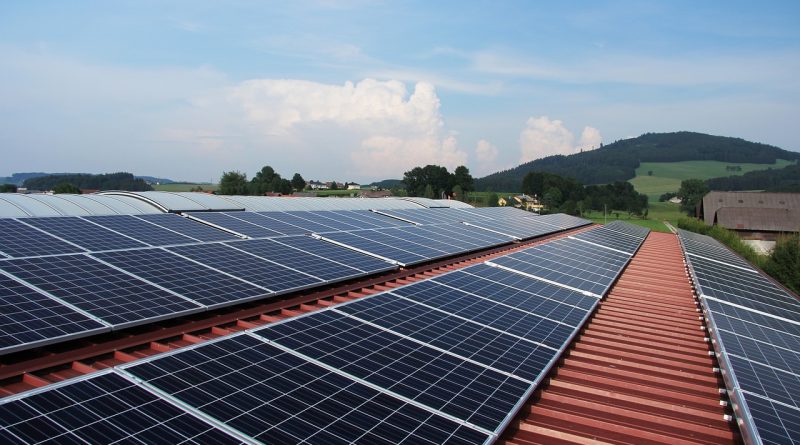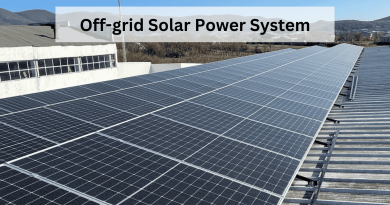Grid Connected Solar Rooftop System: Sustainable Energy
The demand for renewable energy sources has been increasing steadily over the years, with solar power gaining popularity. Among the various solar energy systems available, the grid-connected solar rooftop system has emerged as a leading option for individuals and businesses alike. This blog aims to provide an informative guide to answer some frequently asked questions about grid-connected solar rooftop systems, making it easier for readers to understand this sustainable energy solution.
Table of Contents
What is a Grid-Connected Solar Rooftop System?
A grid-connected solar rooftop system is a solar power generation system that is connected to the electrical grid of a building or property. This system allows for the generation of electricity from sunlight and simultaneous access to power from the grid when needed. The excess energy generated by the solar panels can be exported to the grid, and energy can be imported from the grid when the generation is insufficient.
How Does a Grid-Connected Solar Rooftop System Work?
The key components of a grid-connected solar rooftop system are solar panels, an inverter, and a bi-directional meter. The solar panels, typically installed on the rooftop of a building, convert sunlight into electricity in the form of direct current (DC). The inverter converts the DC power into alternating current (AC), which is the type of electricity used in homes and businesses. The bi-directional meter measures the electricity imported from the grid and the excess electricity exported back to the grid.
During daytime, when the solar panels receive sunlight, they generate electricity that can be used in the building or exported to the grid. If the electricity demand is higher than the solar generation, power is automatically drawn from the grid. Conversely, if the solar generation exceeds the demand, the excess energy is sent back to the grid, and credits are earned.
What are the Benefits of a Grid-Connected Solar Rooftop System?
Grid-connected solar rooftop systems offer numerous benefits. Firstly, they provide a clean and renewable source of energy, reducing reliance on fossil fuels and mitigating environmental impact. This sustainable energy option helps in decreasing greenhouse gas emissions, contributing to a greener and healthier planet.
Secondly, these systems enable significant savings on electricity bills. By generating electricity from sunlight, there is reduced dependency on the grid, leading to lower electricity consumption and, consequently, reduced bills. Additionally, excess energy exported to the grid can result in credits or financial compensation from utility companies.
Furthermore, the installation of a grid-connected solar rooftop system increases the value of the property. Properties with solar power capabilities are often perceived as more attractive in the real estate market, appealing to environmentally conscious buyers and potentially leading to higher resale values.
Are Grid-Connected Solar Rooftop Systems Reliable?
Grid-connected solar rooftop systems are generally reliable and are designed to operate seamlessly, ensuring a consistent power supply. These systems undergo rigorous quality checks during installation to ensure their efficiency and performance. Additionally, solar panels typically come with warranties ranging from 25 to 30 years, providing peace of mind to users.
Moreover, the dual connection to the grid ensures uninterrupted access to electricity, even during periods of low or no sunlight. The grid serves as a backup power source when the solar generation is insufficient, ensuring that there is no disruption to the electricity supply.
What is Net Metering and How Does it Work?
Net metering is a billing mechanism that enables grid-connected solar rooftop system owners to receive credits or payment for excess electricity generated and exported to the grid. Under net metering, the bi-directional meter tracks the electricity imported from the grid and the surplus electricity exported.
At the end of a billing cycle, if the energy exported to the grid exceeds the energy imported, the user receives a credit or payment from the utility company. This credit can be utilized to offset future electricity bills. Net metering thus encourages efficient energy generation and consumption, maximizing the benefits of a grid-connected solar rooftop system.
Conclusion
Embark on the journey of sustainable energy with SolarClue® and our cutting-edge grid-connected solar rooftop systems. These systems not only offer practical and environmentally friendly solutions for generating electricity from sunlight but also come with numerous advantages such as reduced reliance on grid power and significant cost savings. With the added benefit of net metering, SolarClue® ensures fair compensation for excess energy generation, making the installation of our solar panels financially feasible.
By partnering with SolarClue®, individuals and businesses gain a deeper understanding of the workings and benefits of grid-connected solar rooftop systems, empowering them to make informed decisions. Join SolarClue® in harnessing the power of the sun and actively contributing to a greener and more sustainable future.
Frequently Asked Questions
A system where solar panels on the rooftop are connected to the utility grid, allowing for energy exchange.
Solar panels generate electricity, and the excess can be fed back into the grid, contributing to reduced energy bills.
Benefits include cost savings, potential incentives, and a reduced carbon footprint compared to traditional power sources.
In most cases, yes. Consult with professionals to assess roof suitability and ensure compliance with local regulations.
No, these systems are designed to remain connected to the grid for stability. Consider off-grid systems for total independence.
Yes, these systems are scalable and can be adapted for commercial use, offering businesses cost savings and sustainability benefits.
Net metering allows users to receive credits for excess energy sent to the grid, balancing out energy consumption and reducing overall costs.
Installation time varies but typically takes a few days to a couple of weeks, depending on system size and complexity.
Regular inspection and cleaning are recommended. However, grid-connected systems generally require less maintenance compared to off-grid setups.
Check with local authorities and utility providers for potential incentives, rebates, or tax credits available for adopting solar energy systems.



